Table of Contents
- Why Your Homemade Spaghetti Seasoning Beats Store-Bought Every Time
- 3 Essential Ingredients You Already Have in Your Pantry
- Simple Flavor-Boosting Tricks That Actually Work
- Pro Tips to Avoid Common Seasoning Mistakes
- Best Seasoning for Different Pasta Sauces
- How to Store Homemade Seasoning for Maximum Freshness
- 3 Foolproof Spaghetti Seasoning Recipes Ready in 5 Minutes
- Create Restaurant-Quality Pasta at Home
Why Your Homemade Spaghetti Seasoning Beats Store-Bought Every Time
Store-bought spaghetti seasoning often contains fillers like cellulose and anti-caking agents that dilute flavor. Making your own takes just 5 minutes and uses ingredients you likely already have. The difference? Your pasta will have brighter, fresher taste without artificial additives, and you can adjust flavors to match exactly what you're cooking.
Here's what makes homemade seasoning better: You control every ingredient. No more mysterious "spice blends" or excessive salt. Just pure herbs and spices that actually enhance your sauce instead of masking its natural flavor.
3 Essential Ingredients You Already Have in Your Pantry
Forget complicated ingredient lists. These three pantry staples form the foundation of perfect spaghetti seasoning:
- Dried Basil: Adds sweet, herbal notes that balance tomato acidity
- Oregano: Provides earthy depth that develops as your sauce cooks
- Garlic Powder: Delivers consistent garlic flavor without burning
| Ingredient | Why It Works | Simple Substitutes |
|---|---|---|
| Basil | Neutralizes tomato sharpness naturally | Parsley (use 25% more) |
| Oregano | Deepens flavor as sauce simmers | Marjoram (use 30% less) |
| Garlic Powder | Cooks evenly without burning | Fresh garlic (add near end) |
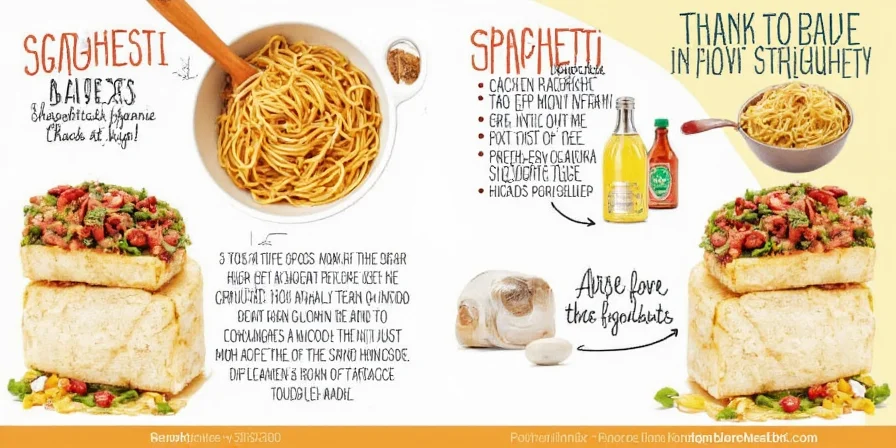
Simple Flavor-Boosting Tricks That Actually Work
Transform your basic blend with these easy techniques anyone can do:
- Toast Your Spices: Heat in dry pan for 60 seconds to wake up flavors
- Add Umami Secret: Tiny pinch of anchovy paste (you won't taste it!) enhances tomato flavor
- Better Acid Balance: A pinch of sugar counters tomato sharpness in meat sauces
- Layer Your Flavors: Add dried herbs early, fresh basil at the end
These tricks work because spices release more flavor when heated properly, and certain ingredients naturally enhance tomato's best qualities. You'll notice immediate improvement in how your sauce tastes and smells.
Pro Tips to Avoid Common Seasoning Mistakes
Avoid these pitfalls that ruin homemade seasoning:
- Don't Measure with Spoons: Use same spoon for all ingredients for perfect balance
- Avoid High Heat: Never cook spices above medium heat to preserve flavor
- Add Salt Later: Put salt in after tomatoes to prevent watery sauce
- Fix Too-Much Acid: Add tiny pinch of baking soda only after sauce thickens
Best Seasoning for Different Pasta Sauces
Match your seasoning to your sauce type for perfect results:
| Sauce Type | Best Seasoning Mix | When to Add |
|---|---|---|
| Tomato Sauce | Oregano + basil + garlic | With onions at beginning |
| Cream Sauce | Nutmeg + white pepper | After adding cream |
| Meat Sauce | Oregano + garlic + red pepper | With meat while browning |
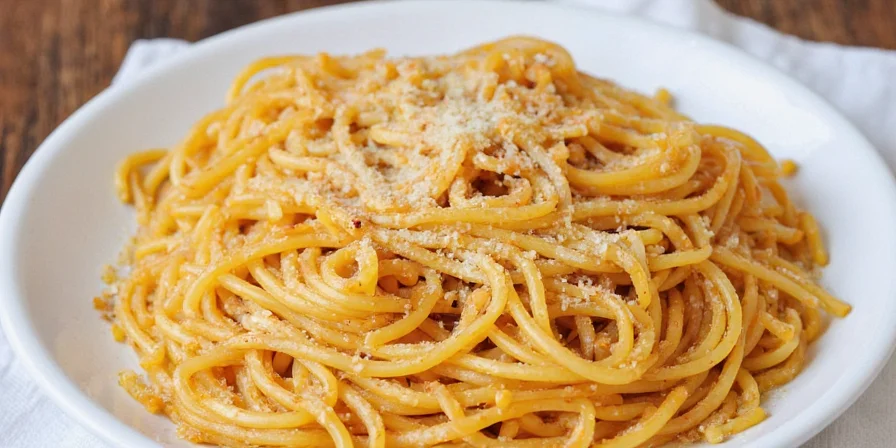
How to Store Homemade Seasoning for Maximum Freshness
Keep your seasoning tasting fresh for months:
- Air-Tight Container: Mason jars work perfectly for small batches
- Dark Place: Store in cabinet away from stove heat and sunlight
- Cool Temperature: Pantry is fine - no need for refrigeration
- Moisture Control: Add rice grain to absorb humidity if needed
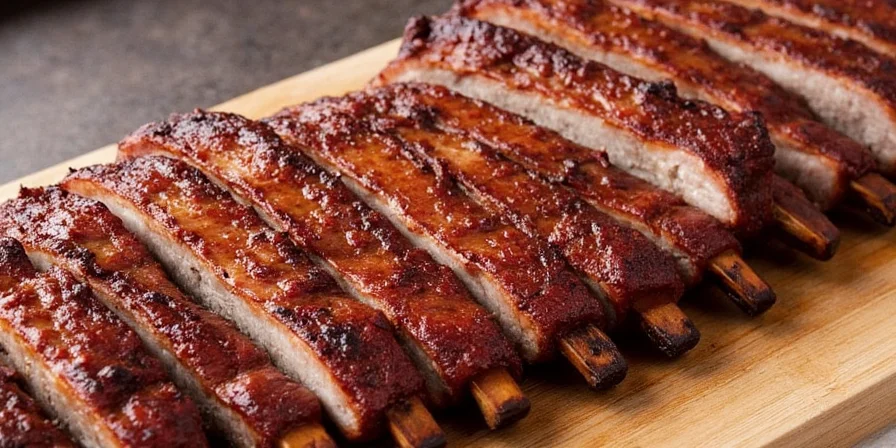
3 Foolproof Spaghetti Seasoning Recipes Ready in 5 Minutes
These simple blends work for any pasta night:
Classic 3-Ingredient Blend
Make it: Mix 2 tbsp oregano, 1 tbsp basil, 1 tbsp garlic powder. Use 1 tbsp per pound of pasta.
Quick Weeknight Marinara Boost
Make it: Combine 1 tbsp oregano, 2 tsp basil, 1 tsp garlic powder, 1/2 tsp red pepper flakes. Add to sauce while simmering.
Meat Sauce Enhancer
Make it: Mix 1 tbsp oregano, 1 tsp basil, 2 tsp garlic powder, 1/2 tsp fennel seeds. Add when browning meat.
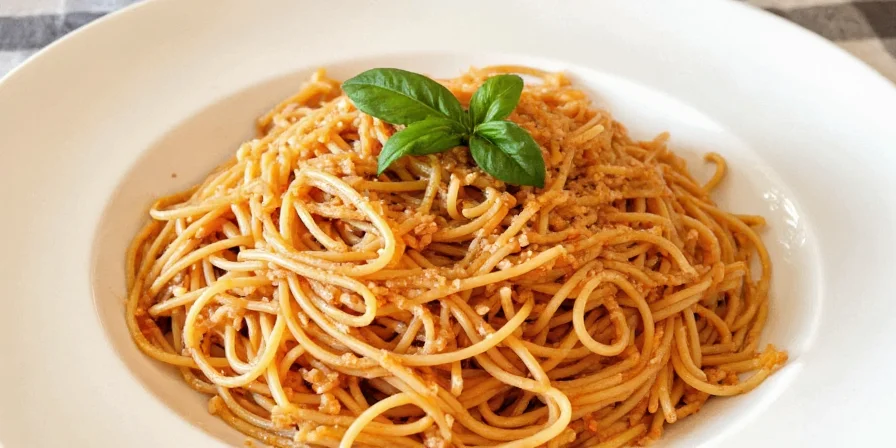
Create Restaurant-Quality Pasta at Home
Homemade spaghetti seasoning isn't about complicated recipes - it's about using quality ingredients properly. Start with the basic 3-ingredient blend, then adjust based on what you're cooking. Within weeks, you'll develop your own signature mix that makes your pasta taste better than any restaurant.
The real secret? Freshness. Homemade seasoning loses nothing in translation from jar to plate. When you make it yourself, you taste the difference immediately in richer, more vibrant sauces that actually taste like the ingredients you used.
Frequently Asked Questions About Homemade Spaghetti Seasoning
How long does homemade spaghetti seasoning last?
Properly stored in an air-tight container away from heat and light, homemade spaghetti seasoning maintains peak flavor for 6-8 months. For longest freshness, make small batches you'll use within 3 months.
Can I use fresh herbs instead of dried in my seasoning blend?
Yes, but use 3 times more fresh herbs than dried. Add fresh herbs during the last 5-10 minutes of cooking since their flavor diminishes with long simmering. Dried herbs work better in seasoning blends meant for storage.
My sauce tastes bitter - did I use too much seasoning?
Bitterness usually comes from burned garlic or spices. To fix: reduce heat when adding seasoning, and add a pinch of sugar to balance flavors. Never cook dry spices over high heat - always add them to oil or sauce first.
What's the simplest spaghetti seasoning for beginners?
Start with equal parts oregano, basil, and garlic powder. For every pound of pasta, use 1 tablespoon of this blend. Add salt separately to taste after your sauce has reduced. This basic mix works for almost any tomato-based sauce.

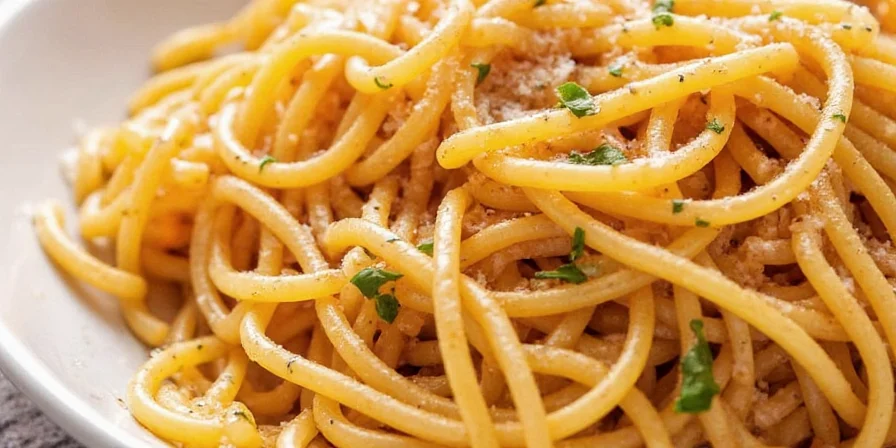









 浙公网安备
33010002000092号
浙公网安备
33010002000092号 浙B2-20120091-4
浙B2-20120091-4